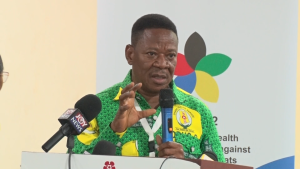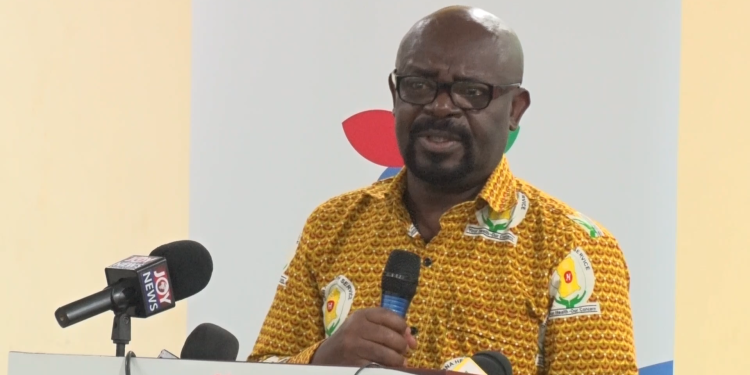Public trust in government health facilities is dwindling due to the poor attitude of some health care providers, the management of the Ghana Health Service (GHS) has disclosed.
Speaking at the opening of the 32nd Annual National District Directors of Health Service Group Conference in Kumasi, a speech delivered on behalf of the Director-General of the GHS, Prof. Samuel Kaba Akoriyea, revealed growing public dissatisfaction with service delivery at health facilities.
He stressed the need for a change in behavior to help restore confidence in the country’s health system.
The three-day conference is being used by district directors to review performance and recommend improvements to health care delivery.
The meeting is also expected to influence policy decisions aimed at promoting quality health services across the country.
Prof. Akoriyea expressed concern over what he described as the poor attitude of some health professionals, a development he attributed to weak managerial supervision.
“We must confront a difficult reality: public trust in our health services is deteriorating. Too many Ghanaians complain about poor attitude, lack of leadership, weak supervision, and delayed care.
This dissatisfaction has even resulted in lawsuits against the Service, draining huge sums of money that should have gone into improving care,” he lamented.
He emphasized that district directors must take full responsibility for supervision and oversight in their jurisdictions.
“Leadership failure at the local level can no longer be tolerated. Non-performing district directors will be held accountable. Absentee leaders and managers who fail to demonstrate capacity will no longer be accommodated,” he warned.
The Director-General urged district health leaders to recommit themselves to the mission of the Ghana Health Service and to the communities they serve.
Representing the Asantehene, Otumfuo Osei Tutu II, the Chief of Nkwantakese, Nana Boakye Yam Ababio, also challenged district directors to step up their performance. He highlighted their critical role in bridging national health policies with community realities.

“You are the implementers, the custodians of health care at the grassroots. Without your leadership and sacrifice, health care in our towns and communities would grind to a halt,” he said.
Meanwhile, inadequate operational funding was identified as one of the key challenges hampering service delivery. Dr. Justice Thomas Sevugu, Chairman of the National Executive Council (NEC), disclosed that only one percent of their annual budget is allocated to internal programs, making it difficult for districts to operate effectively.

“While program-specific funds may be provided, they cannot support the daily administrative work required at the district level. We are pleading that government operational funds be allocated directly to districts on a regular basis. We also call on the National Health Insurance Scheme to consider including public health services in its reimbursement formula,” Dr. Sevugu appealed.
Source: www.kumasimail.com




































































